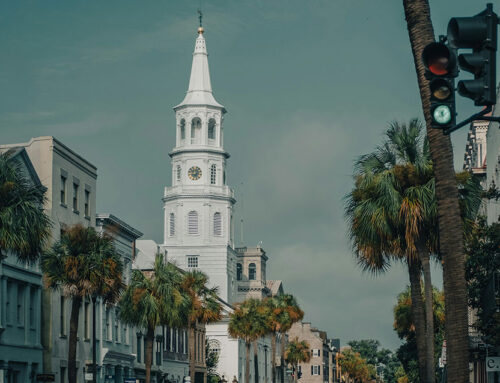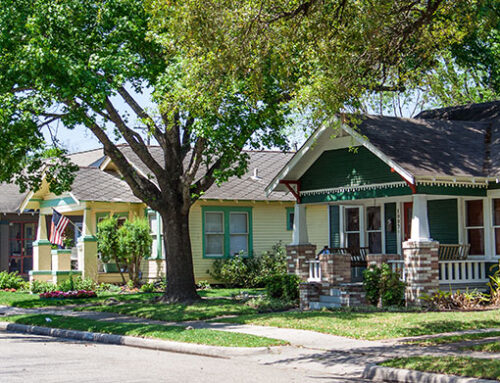
When I think of startup businesses that bring innovative products and solutions to market, my mind automatically drifts west to Silicon Valley, which spawned tech behemoths such as Apple, Uber, and Airbnb. In 2018, Northern California saw more than $25 billion in seed money funneled to companies hoping to be the next unicorn—a business that reaches $1 billion in valuation, despite the overwhelming odds against such success. Back on the East Coast, Boston has developed its own solid reputation for launching new companies, trailing not too far behind NorCal and New York City in the number of venture capital deals consummated in the past year. For that reason, when I look at investment property in Massachusetts, Beantown is usually one of the first markets on my radar.
It makes a lot of sense that Boston and its surrounds make for a good real estate play. More than 30 colleges call the area home and many budding entrepreneurs from Harvard and MIT don’t stray far from their alma maters. The financial services and healthcare industries have always had a huge footprint in Massachusetts. Fidelity Investments and Massachusetts General Hospital bring many job opportunities to native New Englanders and transplants alike. Online merchants such as Wayfair and TripAdvisor are also headquartered in the tech hub, and the teeming economy in Boston has a rippling effect on suburbs and nearby towns, making the search for property investment fruitful, but competitive. That’s why when I formulate my real estate investment strategies, I focus not only on the metro area but also some regions of the state that appear destined to catch fire.
Where to Find Investment Property in Massachusetts
I’ve never been fortunate enough to get in on the ground floor investments at Google or Amazon. Trying to find the next high-flying internet sensation can be a speculative pursuit. I have, however, been able to craft a winning strategy to buy and sell homes in Massachusetts, and these are some of the best areas I’ve found for a consistently rewarding return on investment (ROI).
Boston
It’s only logical to start at the industrial epicenter of Massachusetts and then work my way out. Boston’s real estate market has bounced back admirably from the financial crisis of 2009, and all signs point to continued growth in 2019. Home prices will continue on their upward path and rents will follow suit. Demand for real estate rentals has become strong while potential first-time home buyers stay in their digs until median prices spiral back down to earth. I expect any real estate boom to last about a decade and Boston has been on the upswing since 2009. When growth starts to level off, I’ll search for single-family homes and multi-unit rentals that present acceptable cap rates. All types of opportunities exist and high-end homes in Beacon Hill and the Seaport District can’t be overlooked as the new tax legislation is expected to have an adverse impact on the luxury market. Investors with deep pockets may see as much as a 10% decline in upscale properties.
So, what makes Boston so appealing? In addition to the typical big-city draws, unemployment has continuously dropped in Massachusetts and tens of thousands of new jobs were created in 2018. The aforementioned highly skilled labor force has a profound impact on the Boston area as recent college graduates don’t have to stray far to find competitive salaries. Boston’s median household income is significantly higher than the rest of the nation and those dollars tend to buoy local retail and service businesses. A strong labor market propels the housing market and, fortunately for me, I’ve been able to gradually increase the rent on my properties that I purchased right after the subprime home loan crisis. Credit was tighter back then but I just couldn’t pass up deals on properties that dipped significantly in value and have been climbing back in the past 10 years. Many home loan defaults from that precarious period saw a number of anxious sellers listing homes for less-than-market, and now my strategy is bearing fruit in the form of capital gains and increasing monthly income levels.
Worcester
One of the key components of any successful real estate investment is predicting how well the market will perform from the time you buy a property until you plan to sell it. As an individual investor, it’s sometimes difficult to gauge those trends but one practice I’ve adopted involves tracking the big dollars flowing into a community. Large-scale developers spend much of their resources identifying which areas appear to hold the greatest potential for growth. In Worcester, several firms collectively added more high-end units to the rental landscape last year, to the tune of hundreds of millions of dollars. These new apartments feature amenities that include a concierge service, a private parking garage, a fitness facility, a pool, and a high price tag. The influx of upscale properties has helped push the median rental price in the city and that increase bodes well for my projected cap rates. This measure divides my gross annual rental income—minus yearly costs such as maintenance, taxes, and repairs—by the acquisition price of the home. If I can gradually command higher rents while property values also rise, it’s a win-win scenario.
Buyers are drawn to a town for a number of reasons that combine to form a scale known as livability. The somewhat subjective score looks at factors that include the quality of schools, the availability of public transportation, and the ease of access to shopping, dining, and recreation—all of which Worcester has. And, the city’s cultural rebirth has centered on the efforts of residents who have generated interest in Worcester’s art scene as well as the locale’s historical vibe. Local artists and patrons of the arts have promoted street festivals and displays of sculptures in Elm Park, a venue that draws contributors from all over the nation. When this cultural rebirth coupled with big-money investor confidence, I took it as a sign that something promising was shaping up in Worcester. As a result, I’ve bought some rentals and buy-and-holds to take advantage of the appreciation in home prices and median rents.
Leominster
There are hunch bets and then there are carefully calculated risks. Since I’m investing significant dollar amounts in residential real estate, I usually like to lean on the latter methodology of purchasing homes to either buy and hold or buy, renovate, and sell. With my property acquisitions in Leominster, I’m probably landing somewhere in the middle of gut instinct and good numbers. To begin with, Leominster median home values are about half of what they are in nearby Boston, so I can target single-family home investments at lower price points. And, because median home sales prices are on an overall rise, I can expect potentially higher returns when I sell—provided I keep my costs low. Additionally, while sales have continued to grow admirably since 2016, helping to create a seller’s market, supply is still greater here than Boston and its suburbs. That makes Leominster a great find for buyers whose budgets limit their choices in Beantown. It also makes a great case for the likelihood that property values could surge further in 2019.
In 2017, Amazon chose 20 finalists among 238 applicants for its “HQ2” sweepstakes, expected to create 50,000 direct jobs with another 250,000 indirect opportunities. Leominster, once among applicants that were up for consideration, was overtaken by Boston as the sole New England candidate to potentially land the deal. Nonetheless, Leominster was finally placed firmly on the map and in the sights of big corporate interests. But, even before the battle for Amazon began, Leominster home values did pretty well on their own. The expectation that they might do especially well in the coming year as a result of the residual effects of the “HQ2” sweepstakes is reasonable. A stronger job market will certainly help advance Leominster’s potential growth. The extra boost coming from home buyers who are expanding their search beyond the Boston market only adds to the reasons I chose to purchase below-market homes and income properties about an hour’s drive from Beantown. With or without Jeff Bezos, I’m fairly certain that a more attractive ROI will come.
Mashpee
I’m like many other folks out there who pick Kentucky Derby horses largely based on a funky name. That’s not the sole reason I landed on Mashpee—in Barnstable County, no less—for real estate investment but it probably factored into the subconscious equation. Moreso, I’m a huge proponent of diversification in my real estate portfolio. I’ve spread my dollars among various geographic locations and market niches in Massachusetts, so vacation rental properties have found a spot in that portfolio. To me, it makes a lot of sense to buy seasonal homes on Cape Cod and hold them for 10 years or more. Despite the perceived scarcity of properties to buy on the Cape, I’ve found some undervalued properties that owners were looking to unload in a hurry. When the strike price is right, the seasonal rents I can command are enough to cover my annual fixed and variable costs.
When I screen my purchase locales, naturally there’s more to the process than name alone. I’m in this business to make money and the Mashpee housing market is one that should not be passed by. The tiny seaside village finished as a leader in the commonwealth in terms of 2017 over 2016 growth percentages and, though median home sales prices dipped slightly in December of 2018, they remain hot overall. The town attracts pre-retirees who want a little less home but still desire a manageable commute to work. A permanent retirement destination is one draw and a vacation destination is another. I’ve found that second homes can be somewhat of a wildcard when it comes to ownership. In theory, a home on the Cape seems like a wonderful idea but financial practicality often renders those properties unaffordable at some point in time. Be it a lack of economic viability or the continuous burden of upkeep, many owners simply seek an exit. I keep an ear close to the ground for these leads so I can pay less-than-market to a motivated seller.
Holyoke
In any of my real estate investment pursuits, I sometimes include a contrarian play. I look for areas that have been bruised and battered for a number of years and the only way to go is up. Holyoke home values stayed nearly flat in 2017 and didn’t fare much better in 2018. Years of high unemployment and crime have only added to the misery. Even so, home sellers frequently got more than asking last year, which warranted a second look. Of course, normally, I seek opportunity in cities where I would want to live myself. However, as I’ve mentioned, the goal of this business is still profit—and, if Holyoke homeowners can do it, I can too. With that in mind, I’m never averse to buying homes in areas where foreclosure rates are high and certain sellers want to get out as soon as possible. And, therein lies the rub—successfully flipping homes in these markets hinges on using hard money loans to close fast, make the necessary repairs, and sell even faster.
Since time is of the essence, I have to use my resources to find reliable local contractors in Holyoke who complete projects on time at reasonable costs. When all the stars have aligned, the deals in this central Massachusetts town have been too good to pass up. I don’t pay attention to future market projections as the objective here is to buy low and quickly sell the investment property at or close to a price that yields an acceptable ROI. I’m very selective about the small number of homes I purchase, but they usually fall into the blighted category and rest in safer neighborhoods that still merit investigation by first-time home buyers.
Scaling Your Real Estate Investment Business
Just like the path to a blockbuster business starts with a novel idea and transforms into something much greater, my real estate business in Massachusetts began with a single purchase and eventually gained some traction. Along the road, there were many fits and starts but whatever didn’t knock me completely off course made me a better investor. I owe a huge debt of gratitude to the folks at HomeVestors who offered me a franchise opportunity that brought me into the company of fellow independently owned and operated HomeVestors® franchisees and seasoned Development Agents. Their invaluable guidance keeps me on the straight and narrow and I can’t say enough about the nationally-known “We Buy Ugly Houses®” marketing campaign that keeps willing sellers coming to the HomeVestors franchise network.
Contact HomeVestors to scale your investment business with best-in-class support.
Each franchise office is independently owned and operated.
Contact
"*" indicates required fields





